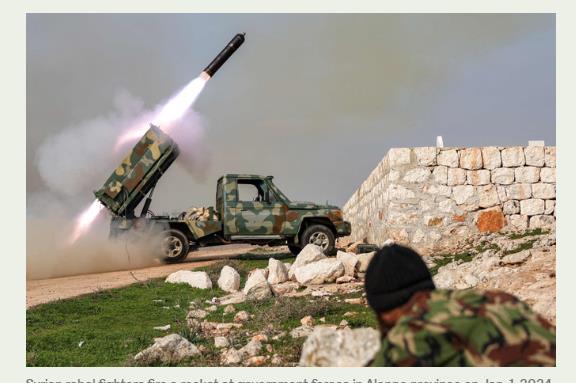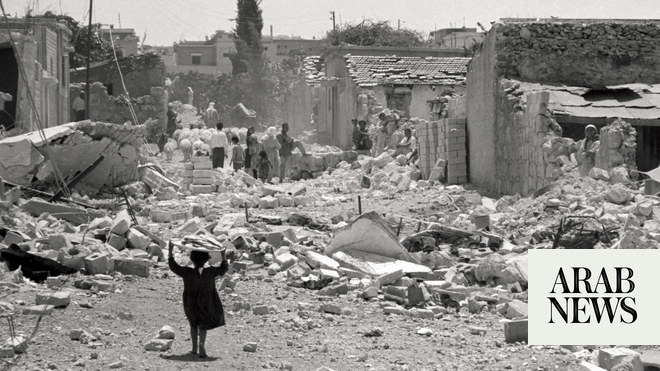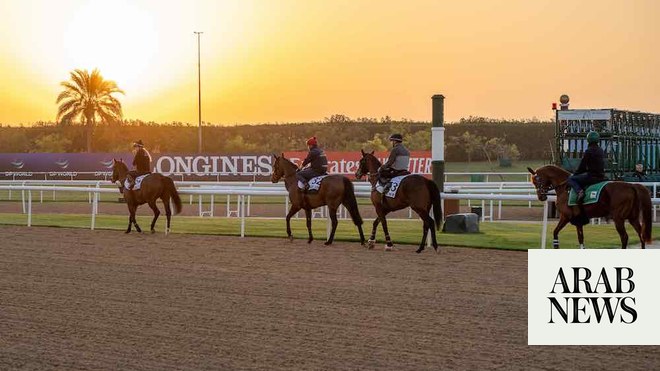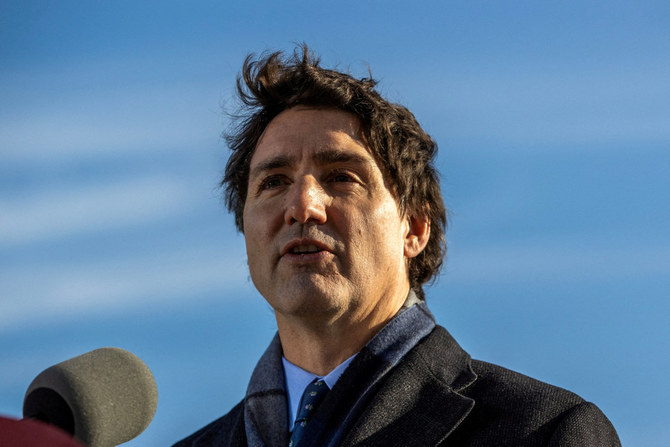
A black swan event is one that was neither predicted nor expected but has catastrophic consequences. As we look at the situation in the Middle East, there have been so many scenarios drawn up and analyzed that we can, with a good degree of certainty, state that nothing unexpected can happen because we expect everything — and always expect the worst.
Yet, as the files pile up, we tend to focus specifically on the urgent and not the important. And so, using a diluted definition of a black swan event, what file or event could take place in 2024 that was not on everyone’s bingo cards? One that could change the dynamics and future of the region.
As the ripple effects of the war in Gaza continue toward tensions between Israel and Hezbollah and the Houthis, there is another theater that could bring about the perfect storm: Syria.
In short, we observe that the war in Gaza has insulated silos and the existing rules of engagement respected by all parties. This has limited the risk of the conflict blowing up into a regional or global one. This is very distinguishable when looking at Hezbollah’s reactions to repeated Israeli strikes. The same applies to the situation in the Red Sea, which is an intensification of the “rules” that have prevailed for decades. The 2016 (also a US election year) episode of American navy command boats being caught and then released by the Islamic Revolutionary Guard Corps serves as a reminder. Iraq could also be added to this list. And so, we notice that interests are shared and disputed from one silo to another, keeping everyone in check.
Syria is the final and biggest silo and it is the one that could create an unexpected outcome. It is the one country where all direct and indirect actors have personnel on the ground: Iran, Turkiye, the US, Russia, China, Israel, etc. It is also a conflict zone that has its own rules of engagement and bizarre arrangements. The clearest of these is the adversarial positions of the Kurdish People’s Defense Units, known as the YPG, and Arab tribes. The first is supported by the US and the latter by Turkiye, which is also a member of NATO. In the same way, we sometimes notice tensions between Iran and Russia despite the fact that they stand on the same side. Since 2011 and throughout the years, the fight against Daesh has served as a “cooler” for this file, with all parties having this common enemy.
However, the intensity and frequency of incidents is rapidly increasing — more than in any other arena. On Saturday, Syrian President Bashar Assad’s forces targeted a crowded market in Idlib province, killing two. Idlib is the last stronghold still controlled by Syrian opposition fighters. Home to 4.5 million people, Idlib is thought to be the most densely populated region in northwest Syria. Of these, 1.9 million reside in camps for internally displaced people.
The US-Turkiye divide has prevented the opposition from resurfacing as a credible threat to the regime.
Khaled Abou Zahr
A few days before this attack, Turkiye announced a new wave of airstrikes on Syria’s Kurdish-held northeast in retaliation for two separate attacks on its bases in northern Iraq, which killed 12 soldiers. Ankara blamed Kurdish militants for the attacks, according to media reports. On Tuesday, a week after killing Razi Mousavi, a senior IRGC general, the Israel Defense Forces said it had carried out strikes on targets in Syria in response to rocket fire on northern Israel a night earlier. The list does not stop here as, also on Tuesday, deadly clashes between the Free Syrian Army and the YPG took place across seven districts in the eastern Deir Ezzor province. The Syrian regime has benefited greatly as a result of these divisions. Despite the fact that it has been unable to regain control over the entirety of its territory, it has been able to regain confidence in its capacity to maintain itself. It is, more precisely, the divisions among the allies of the opposing sides that have given double leverage to Assad and his clan.
The US-Turkiye divide has prevented the opposition from uniting and resurfacing as a credible threat to the regime. And the Russia-Iran competition has given more freedom to the regime in terms of decision-making and ensured it is not in the grip of a single power. Despite all this, the regime has always been — behind the headlines — a low-grade military threat to Israel, which will always be the No. 1 enemy. Finally, if we add in the potential resurgence of Daesh, this situation becomes a perfect spiderweb that protects the Syrian regime and allows it to come back to the surface.
Just as ultimately these are all regional (whether tacit or not) arrangements, it is only a change in these arrangements that has the potential to be a catalyst for a change in the order. There are two possibilities that are most likely. The first is an agreement between the US and Turkiye that would put the regime under serious threat of a united opposition, with the risk of the country moving back into complete chaos. The second is an agreement between the US and Russia in light of the changes in Ukraine and the possibilities that are currently being mentioned of a negotiated outcome. There are others of course, but these are the most plausible in the current situation.
Should both happen at the same time, it would be the biggest challenge to the regime in Damascus and could change the face of the Middle East in a manner unseen since the time of decolonization and independence.
• Khaled Abou Zahr is the founder of SpaceQuest Ventures, a space-focused investment platform. He is chief executive of EurabiaMedia and editor of Al-Watan Al-Arabi.
Disclaimer: Views expressed by writers in this section are their own and do not necessarily reflect Arab News" point of view












